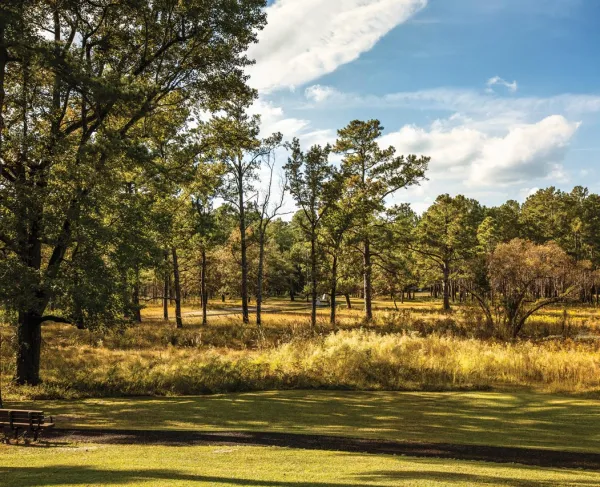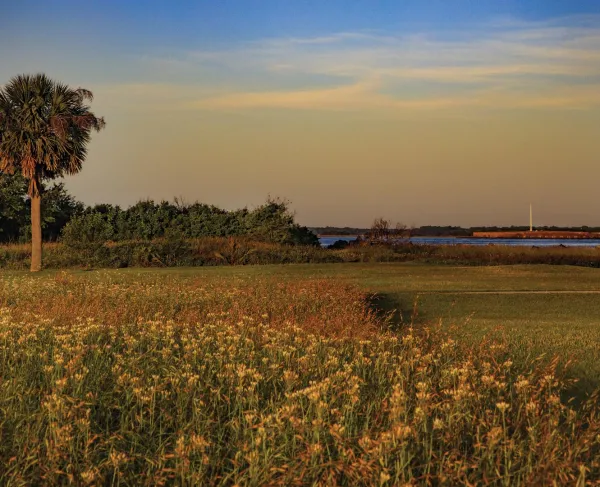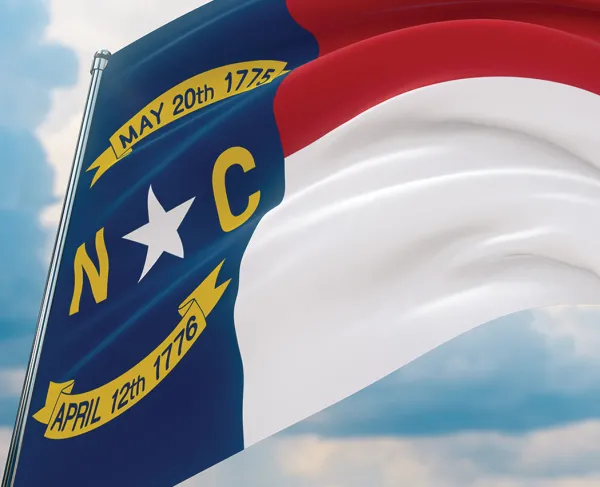Shot Heard 'Round the World
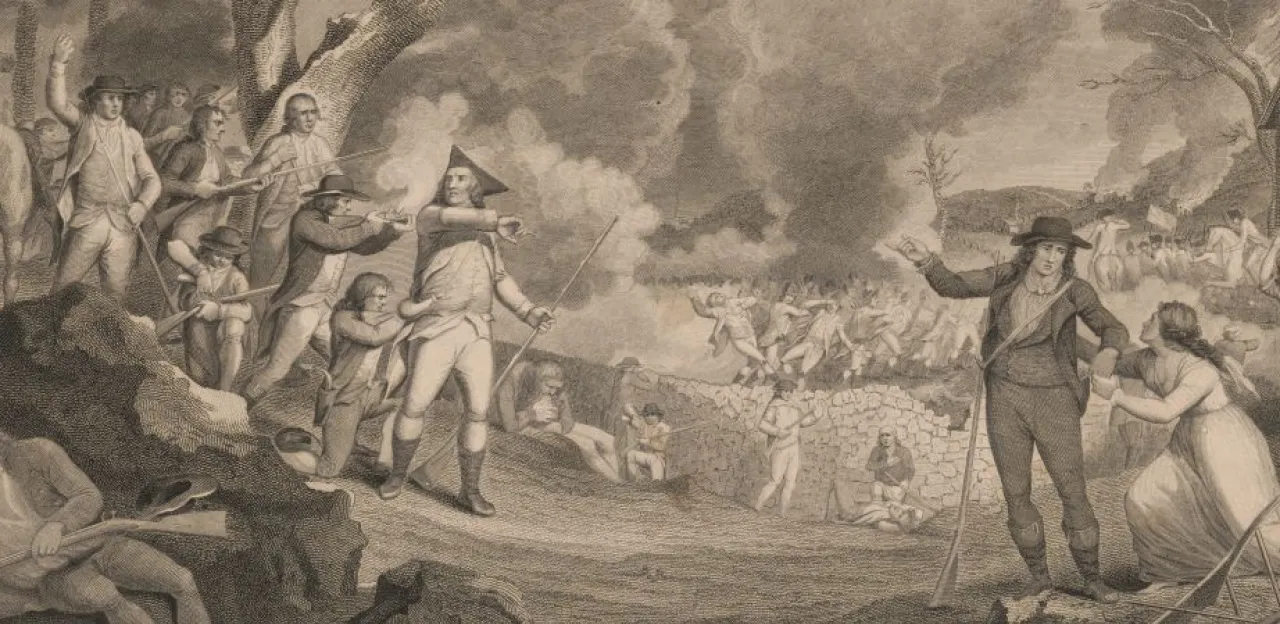
“Will you let them burn the town down?” Asked Joseph Hosmer, a resident of Concord, Massachusetts, and member of the militia and minutemen gathered approximately 300 yards from the town to his nominal commander, Colonel James Barrett, as they watched the British Redcoats search the town for military supplies.
With the question lingering in the air, Colonel Barrett and Major John Buttrick, in charge of the Middlesex Minutemen, were the de-facto heads of this loosely organized force representing various counties and towns throughout the Massachusetts countryside. As they witnessed the looting, they also asked whether or not to provoke an action here, outside Concord. The report from nearby Lexington that had arrived by messenger sent by Colonel Barrett earlier had just said shots had been fired, but whether those were warning shots or actual rounds fired in anger had not been determined. The morning of April 19th had been one of uncertainty, confusion, and excitement.
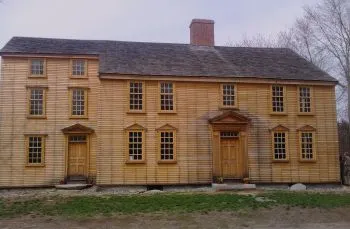
Paul Revere, William Dawes, and Samuel Prescott had alerted the towns of Lexington and Concord early that morning with the reports that the “regulars,” term for British Redcoats, were on the march from Boston. The warning reached John Hancock and Samuel Adams in Lexington who escaped, as the belief of Dr. Joseph Warren, part of the Committee of Correspondence and still residing in Boston, and according to him the British Army may have marched out of Boston to seek their arrest.
The British contingent, under orders from General Thomas Gage, commander of His Majesty’s forces in Colonial America, consisted of light and grenadier companies, with Royal Marines, under the command of Lieutenant Colonel Francis Smith of the 10th Regiment of Foot and Major John Pitcairn of the marines as second-in-command. Their mission, which Gage hoped to be cloaked in secrecy, was to confiscate and destroy the military supplies secreted in Concord.
On the route that was chosen to reach Concord, the British had to pass through the town of Lexington. Revere alerted Captain John Parker and the Lexington militia in the early morning when he came racing through on horseback spreading the alarm before reaching the residence of Reverend Jonas Clarke, where Hancock and Adams spent the night. In the intervening hours, awaiting the approach of the British, Parker had dismissed the militia but told them to stay close. Some had reposed to Buckman’s Tavern, near Lexington Green, the center of town.
As the tramp of the British drew ever closer, a junior officer, Lieutenant Jesse Adair, led the British column. With the sun peeking in the east, the approximately 80 militiamen gathered on the green as the British approached. Parker ordered the men into a parade ground formation as the British changed their course. Instead of continuing down the Lexington Road on the left, Adair, nervous about his flank, led the redcoats onto Lexington Green with the added hope of disarming the militia. At this juncture, the veteran Pitcairn arrived on horseback and in a raised voice ordered the militia to disperse. Outnumbered and outgunned, Parker gave that order as well.
Some of the militia obeyed, as with town folk, including kin, as spectators, a fight could bring down disaster on their heads. Others did not hear, and in the racket of voices, the nervousness of the moment, someone fired a musket. From where and whom the shot originated is unclear: possibly a nervous redcoat, many aware that they were in a hostile environment, or one of the militiamen from an open window ensconced in Buckman’s Tavern, behind the right flank of the British.
Whoever fired first ushered in confusion and a few sporadic follow-up discharges. Then the British retaliated in the form of a volley and surged forward in a bayonet attack. The melee was soon over, with eight Lexington militiamen killed and another ten wounded before the rest panicked and fled. Only one British soldier was struck, wounded in the thigh.
Order was restored soon after and with the arrival of the rest of Smith’s column, the light infantry fired a victory volley before resuming the march on to Concord.
All this added to the consternation of Barrett and his fellow leaders on that hillside outside of Concord. Furthermore, the companies that had guarded the hillside past the North Bridge had retreated to the span, adding their numbers to the third company stationed there prior.
Those three companies, from the 4th, 10th, and 43rd Regiments of Foot under the command of Captain Walter Laurie, stood between the militia and Concord. Light companies guarded the approaches to the bridge on the same side as the militia gathered on Punkatasset Hill and the last guarded the North Bridge over the Concord River. Four more companies, under a Captain Parsons had traveled to the Barrett Farm to search for arms reportedly being hidden there.
With smoke wafting in the air, the Patriots feared that the British were burning the town in retribution for the gathering of military accouterments. Yet, in actuality, the smoke billowing was from a fire that was being suppressed. The British soldiers had stacked their arms and conducted a pail-brigade, handing buckets of water down the line, to extinguish flames that had jumped from a pile of artillery carriages being burnt to a residence in Concord.
As the commanders decided on a course of action, the men continued to murmur and gesture towards the smoke on the horizon. Captain William Smith of Lincoln, Massachusetts, voiced that his men were ready to evict the British from Concord. Isaac Davis, captain of militia from Acton, lent his voice in favor of a forward movement; “I haven’t a man who is afraid to go.”
Colonel Barrett, 64 years young that April day, turned to the men behind him on that hillside and ordered them to load their muskets. He implored the men to not fire first, but if fired upon, “to fire as fast as we could,” as was how one militiaman remembered. With these final preparations and instructions passed to the various units, Barrett led the men down the hill.
As the militia and minutemen tried to cover the open ground toward the North Bridge as quickly as possible, precision in battle line formation suffered. The British, seeing the advance, retreated to a position across the bridge on the town side.
This movement excited Major Buttrick, who believed their force could get across the bridge “If we were all of his mind he would drive them [the British] away from the bridge, they should not tear it up,” as he instructed the men around him. The men who heard him consented, in one unified voice. The minutemen from Acton, the only unit with bayonets and cartridge boxes, were in the lead at this juncture.
British Captain Laurie, in charge of the 115 men in the three companies, gave the command to move into “street firing” formation to allow for uninterrupted firing, as one row would fire, then melt to the flanks of the one behind, which would then fire, and do the same behind the third row, and so on until the field was taken or given up.
On came the militia, muskets held mostly at the trail in their left hands, the stocks barely above the ground. After descending the hill, the men’s route had consumed the curvature of the topography, reaching a causeway, and then headed east along the Concord River toward the North Bridge. Captain Laurie was still scrambling to get the three companies into the right formation, since, being from various units, the men had not worked with each other prior to being put together for this advance into the Massachusetts countryside.
And then, a musket discharge reverberated. Captain Laurie snapped his head around and noticed one of his men had fired. The now-famous “shot heard around the the world” had been discharged.
Two more British soldiers squeezed their triggers. These three shots were followed by a ragged volley from the front rank of redcoats. Though most of the rounds went high, a few of the rounds struck home. One instantly killed Captain Davis as a bullet pierced his chest. Private Abner Hosmer, an Acton minuteman, also died when a bullet penetrated his skull. The militia and minutemen were within 50 yards of the North Bridge.
Above the resounding din of the British muskets, Major Buttrick’s voice could be heard:
“Fire, fellow soldiers, for God’s sake fire!”
The order rippled through the ranks and the men halted, brought muskets to shoulders, and squeezed triggers. Bullets ripped through the British ranks, striking four officers and killing three privates and wounding five others. Pandemonium erupted in the British lines, and the men hastily retreated toward town.
As the action unfolded over the wooden span, the four companies that were dispatched to recover the military supplies headed back toward Concord. Colonel Barrett displayed his tactical adeptness by splitting his force in two, with the militia staying on the west side of the North Bridge and Major Buttrick leading the minutemen across the North Bridge to a defensive position. Proceeding out of the town were British reinforcements under Lieutenant Colonel Smith. One look at Buttrick’s minutemen manning the stonewall convinced the British commander to order a countermarch back to the town proper.
Coming from the other direction, Captain Parson’s command passed by the Massachusetts men, who remained eerily silent, guns ready, but not cocked. Upon the return of the British soldiers from Barrett’s homestead, Lt. Col. Smith ordered the entire British command back toward Boston, twenty-soon-to-be-hellish miles away.
Thus, the “shot heard around the world” faded into the history books, as more shots, many more, would be fired in the ensuing hours as the British were harried back to the safety of the environs of Boston. Standing within view of the North Bridge was The Old Manse, constructed in 1770 for Reverend William Emerson, who witnessed the actions of April 19, 1775. His grandson, in 1837, the writer and poet, Ralph Waldo Emerson ended the first stanza of the “Concord Hymn” with the line:
“And fired the shot heard round the world.”
Although not uttered at the time of the engagement in April 1775, the “shot” marked the turning point of the fracas between the American Colonies and Great Britain. With shots fired, there was no turning back, and that evening the British found themselves trapped in Boston. Within months, George Washington, a Virginian, would be elected commander of the Continental Army. Six years and six months later, the British surrendered at Yorktown, Virginia, which marked the unofficial end of the American Revolution. Two years after that, the Treaty of Paris was signed between the two initial warring parties and American ally France.
The actions at Concord, at Lexington earlier that same day, and along the stretch of Massachusetts countryside now remembered simply as “Battle Road” were the “shots heard round the world” transitioned the war of words to one of bullets and the long trek to American independence.
